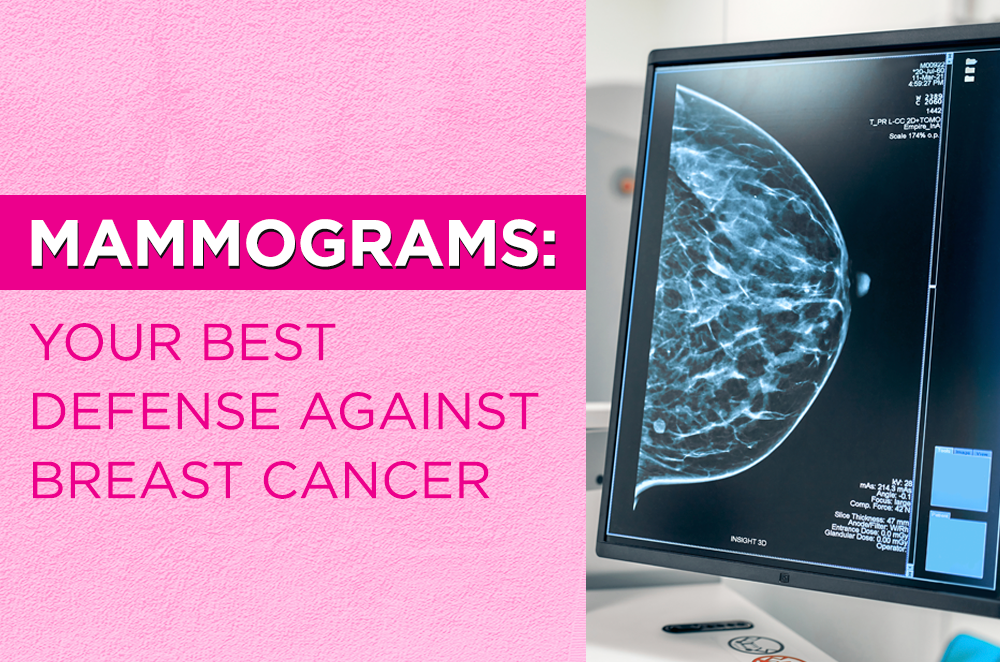Mammograms can feel intimidating, but at Comanche County Memorial Hospital (CCMH), we want to empower you with the facts. Early detection through mammography is proven to significantly increase the five-year survival rate for breast cancer. Our goal is to provide a clear understanding of what to expect and why this screening is a cornerstone of your breast health. We’ll also show you how our advanced technology provides you with the best possible care.
Digital Mammography at CCMH
At the McMahon Center for Breast Health, we’ve invested in the very best for our patients: the Fujifilm Medical Systems FCRm full-field digital mammography system. This advanced technology isn’t found everywhere—it’s a significant step up from traditional systems. So, what does this mean for you?
Unmatched Clarity: Digital images are incredibly detailed. Our radiologists can manipulate the brightness and contrast, much like a photo editor, to get the clearest possible view. This is especially helpful for identifying subtle abnormalities, particularly in dense breast tissue, which can be challenging to screen.
Faster, More Comfortable Exams: The digital system captures images quickly, meaning less time and less compression for you. We also prioritize your comfort with Mammo Pads, single-use foam cushions that provide a softer, warmer surface during the procedure.
Lower Radiation Dose: Studies show that our digital system can provide a lower radiation dose compared to older, film-based methods.
Extra Confidence with iCAD: An iCAD computer-aided detection system also reviews every image. Think of it as a second set of highly trained eyes that helps highlight areas that our radiologists may need to examine more closely.
What to Expect During Your Mammogram
A mammogram is a simple, quick imaging procedure that uses low-dose X-rays to create images of the breast. When you arrive, a technologist positions your breast on a platform and apply compression for a few seconds. This compression is necessary to get a clear image with the least amount of radiation. The entire process takes about 15 minutes, and our board-certified radiologist then reviews your images.
Sometimes, however, a standard mammogram isn’t enough. If you have dense breast tissue, it can make it harder for a radiologist to spot potential issues on a mammogram. This is because both dense tissue and cancerous masses appear white on the image, making it difficult to differentiate between them.
If you have dense breasts, your doctor may recommend additional screening tools, such as a breast ultrasound or MRI. These provide a more detailed look at the breast tissue, helping to find any abnormalities that might be hidden on a mammogram.
How Often Do I Need a Mammogram?
This question often causes confusion because different health organizations offer slightly different guidelines. However, most experts agree on a few key points for women at an average risk of breast cancer.
For women ages 40-49: Many organizations, including the American College of Radiology, recommend that you begin annual mammograms at age 40. This is because we know that breast cancer can and does affect women in this age group.
For women ages 50 and older: Many guidelines suggest you continue getting a mammogram every year. Some organizations, however, say that you may be able to switch to a mammogram every other year, especially if you have had no abnormal results. It’s always a good idea to discuss this with your doctor to determine the best schedule for you.
For women at higher risk: If you have a family history of breast cancer, a known genetic mutation like BRCA, or other risk factors, your doctor may recommend that you start screening earlier and more frequently. In some cases, a doctor might recommend a combination of a yearly mammogram and an annual breast MRI.
Ultimately, we advise you to talk to your doctor about your personal health history to determine the best screening schedule.
Our Commitment to You
Your health is our priority. That’s why the McMahon Center for Breast Health is committed to using the latest technology and a compassionate approach to provide the best possible care. Our Women’s Imaging facility is certified by the American College of Radiology and the Mammography Quality Standards Act, so you can feel confident that you’re in good hands.
We combine state-of-the-art digital mammography with a patient-first approach to make your screening experience as comfortable and reassuring as possible. Remember, a mammogram is your best defense against breast cancer—and we’re here to help you every step of the way.
Ready to schedule your mammogram? Call us today at (580) 250-5846 to take the next step for your health.
Resources:
https://www.breastcancer.org/screening-testing/mammograms
https://www.acr.org/Clinical-Resources/Practice-Management/Mammography-Saves-Lives
Disclaimer:
The Comanche County Memorial Hospital website does not provide specific medical advice for individual cases. Comanche County Memorial Hospital does not endorse any medical or professional services obtained through information provided on this site, articles on the site or any links on this site.
Use of the information obtained by the Comanche County Memorial Hospital website does not replace medical advice given by a qualified medical provider to meet the medical needs of our readers or others.
While content is frequently updated, medical information changes quickly. Information may be out of date, and/or contain inaccuracies or typographical errors. For questions or concerns, please contact us at contact@ccmhhealth.com.

